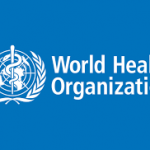By Asma’u Ahmad
The World Health Organisation (WHO) predicts that the world may record more than 17 million cancer-related deaths in the next 20 to 30 years if unhealthy lifestyle choices should continue.
The WHO Regional Director for Africa, Dr. Matshidiso Moeti, said in a statement released to newsmen in Abuja that African countries would be the most affected by the disease.
“Cancer is a leading cause of death worldwide, with approximately 8.8 million cancer-related deaths in 2015. Within the next 20-30 years, the global death rate due to cancer is expected to double, and African countries are likely to be the most affected,” Dr. Moeti said.

The director said the prediction on the rise of cancer cases, especially in Africa, was based on the continent’s ageing population, persistence of chronic infections, unhealthy lifestyle choices and risk factors such as overweight.
She also listed low fruit and vegetable intake, lack of physical activity, tobacco and alcohol consumption, as other unhealthy lifestyle choices, which can increase the risk of developing the disease.
“Such choices are greatly influenced by forces outside of people’s control, from unhealthy, cheap food choices at shops and schools, to poor urban planning and marketing of tobacco and alcohol.
“In the African region, the most common cancers are cervical, breast, liver and prostate as well as Kaposi’s sarcoma and non-Hodgkin’s lymphoma. Cancer-causing viral infections such as human papilloma
virus (HPV), hepatitis B and hepatitis C (HBV/HCV) significantly contribute to the burden of cervical and liver cancer.
“The WHO Regional Office for Africa recently released a report, which alarmingly found that one-quarter of adults in half of the African countries surveyed had at least three of these risk factors.
“Tobacco is the most important risk factor for cancer, causing about 70 per cent of lung cancer deaths and 20 per cent of other global cancer deaths. In the African region, daily tobacco use among adults ranges from 5 per cent to 26 per cent, that is 12 per cent across the region,” Matshidiso said.
She said that individuals and governments should take drastic action to reverse the trend, which had continued to threaten the strides made in other areas.
She further urged governments and other stakeholders to take action through the creation of healthy schools, workplaces, and cities, as well as promote policy change and improve access to people-centered
cancer care.
She added that welfare programmes for patients and families, psycho-social and rehabilitation services, as well as surveillance and cancer control efforts could be embarked upon.
According to the country director, the 2017 World Cancer Day with the theme ‘We Can, I Can,’ is a three-year campaign launched in 2016 to maximise reach and impact.
She said it was a day to reflect on how cancer affected everyone in different ways, and how collectively or individually, actions could be taken to reduce the impact of the disease on individuals, families and
communities.




